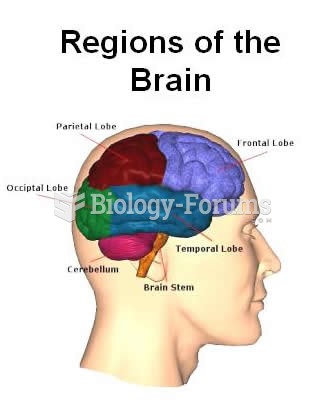|
|
|
Did you know?
The highest suicide rate in the United States is among people ages 65 years and older. Almost 15% of people in this age group commit suicide every year.
Did you know?
Certain chemicals, after ingestion, can be converted by the body into cyanide. Most of these chemicals have been removed from the market, but some old nail polish remover, solvents, and plastics manufacturing solutions can contain these substances.
Did you know?
The horizontal fraction bar was introduced by the Arabs.
Did you know?
It is difficult to obtain enough calcium without consuming milk or other dairy foods.
Did you know?
More than 150,000 Americans killed by cardiovascular disease are younger than the age of 65 years.







